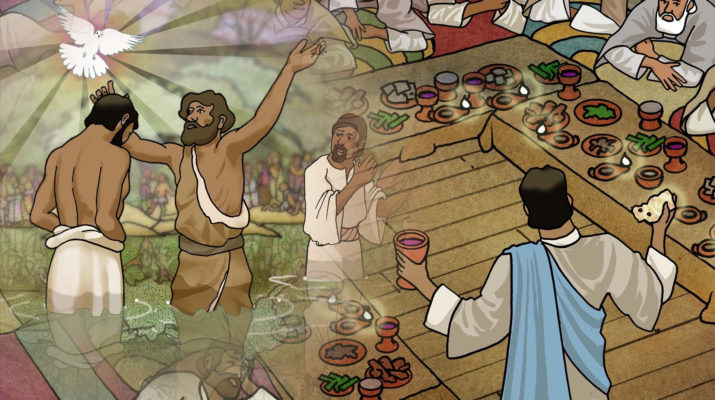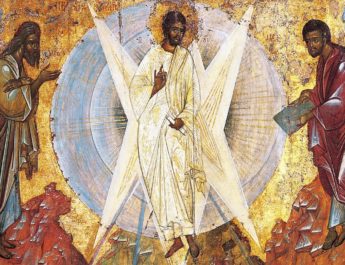John 6:51
Narrative Lectionary
51 I am the livingA breadB that came downC from heaven.D
A “living” = zao. This is to live literally or figuratively. It is used for life including the vitality of humans, plants, and animals – it is life physical and spiritual and life everlasting.
B “bread” = artos. Perhaps from airo (raise, take up, lift, remove). This is bread or a loaf. It is a loaf as raised.
C “came down” = katabaino. From kata (down, against, throughout, among) + baino (to walk, go). This is to come down whether from the sky to the ground or from higher ground to lower. It can be used in a literal or figurative sense.
D “heaven” = ouranos. May be related to oros (mountain, hill) with the notion of height. This is the air, the sky, the atmosphere, and heaven. It is the sky that is visible and the spiritual heaven where God dwells. Heaven implies happiness, power, and eternity.
Whoever eatsE of this bread will live forever;F and the bread that I will giveG for the lifeH of the worldI is my flesh.”J
E “eats” = phago. This is to eat or figuratively to consume like rust does.
F “forever” = eis + ho + aion. Literally, “to the age.” Aion is from the same as aei (ever, always, unceasingly, perpetually; on every occasion). This is an age, cycle of time, course, continued duration. It is also used to describe the eternal or forever. This is the word used to discuss the present age or the messianic age.
G “give” = didomi. To give, offer, place, bestow, deliver. This is give in a literal or figurative sense.
H “life” = zoe. Related to “living” in v51. From zao (see note A above). This is life including the vitality of humans, plants, and animals – it is life physical and spiritual and life everlasting.
I “world” = kosmos. Perhaps from the base of komizo (to carry, convey, recover); from komeo (to take care of). This is order, the world, the universe, including its inhabitants. Literally, this is something that is ordered so it can refer to all creation. It can also refer to decoration in the sense that something is better ordered and, thus, made more beautiful. This is where “cosmos” and “cosmetics” come from.
J “flesh” = sarx. May be from saroo (to sweep, cleanse by sweeping); from sairo (to brush off). This is flesh, the body, human nature, materiality, kindred. Flesh is not always evil in scripture (as when it refers to Jesus taking on a human body). However, it is generally used in a negative way for actions made selfishly and not through faith. This can mean animal flesh, i.e. meat, or refer to body in contrast to soul/spirit. Flesh can be a way of talking about how things or people are related or talking about human frailty (physical or moral).
Image credit: “Remembering Jesus with Communion” by John Paul Stanley of YoMinistry.




